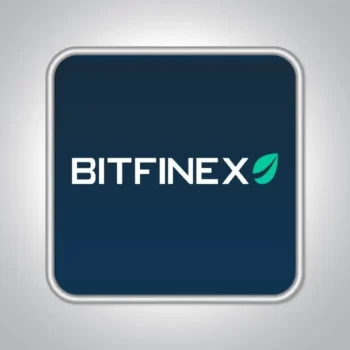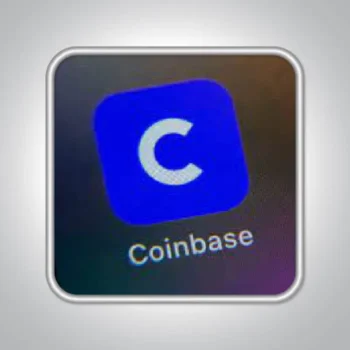Bitcoin Talk Users Emails Database
Bitcoin Talk was created by Satoshi Nakamoto, the pseudonymous creator of Bitcoin, in 2009. The forum serves as a place where cryptocurrency enthusiasts, developers, and investors can discuss various topics related to Bitcoin and other cryptocurrencies. With millions of posts and a large, active user base, it’s no surprise that the forum has become an essential resource in the crypto world.
Bitcoin Talk users range from beginners to seasoned professionals, all sharing a common interest in cryptocurrency. The forum’s influence on the cryptocurrency community is significant, with many early discussions on Bitcoin development and market trends taking place there.
Why Emails from Bitcoin Talk Users Are Sought After
Email lists are valuable commodities in the marketing world. For businesses, having direct access to potential customers is a goldmine, and this is especially true in niche markets like cryptocurrency. Email lists related to Bitcoin Talk are particularly sought after because they provide a direct line to individuals who are already interested in cryptocurrencies, which can be a marketer’s dream.
However, the demand for these email lists also opens the door to unethical practices. Scammers and fraudsters see these lists as an opportunity to spread malware, phishing schemes, or other malicious activities, exploiting the trust and interest of forum users.
How Bitcoin Talk Protects User Information
Bitcoin Talk takes user privacy seriously, with strict forum privacy policies designed to protect user data. The forum employs several measures to prevent data breaches, such as encryption and secure authentication processes. Users are also encouraged to follow best practices, such as not sharing personal information publicly and using strong, unique passwords for their accounts.
Despite these measures, no system is foolproof, and data breaches can still occur. When they do, the responsibility of protecting user information shifts to both the forum administrators and the users themselves.
Risks of Acquiring Bitcoin Talk Users’ Emails
The risks of acquiring and using Bitcoin Talk users’ email databases are substantial. Legally, using stolen or misappropriated data can lead to severe consequences, including fines and imprisonment, depending on the jurisdiction. Moreover, engaging in such practices can damage your reputation and erode trust within the cryptocurrency community.
Ethically, the acquisition and use of these email lists are questionable at best. Users trust forums like Bitcoin Talk to protect their information, and violating that trust can have long-term repercussions for the community as a whole. Additionally, there are significant security risks for both the buyer and the seller, as involvement in such activities can make one a target for cybercriminals.
Common Methods of Acquiring Email Databases
There are several ways that individuals or groups might acquire email databases from forums like Bitcoin Talk, many of which involve illegal or unethical methods. Data breaches and hacks are the most direct methods, where attackers gain unauthorized access to the forum’s database. Phishing scams are another common tactic, where users are tricked into providing their email addresses and other personal information.
Another method involves purchasing email lists from third-party vendors, who may have acquired the data through questionable means. While these vendors might present themselves as legitimate, the origin of the data is often murky, and purchasing from them can have serious legal and ethical implications.
Legal Implications of Using Stolen Data
The legal landscape surrounding data privacy is complex and varies by region, but one thing is clear: using stolen data is illegal. In many countries, laws such as the General Data Protection Regulation (GDPR) in the European Union and the California Consumer Privacy Act (CCPA) in the United States impose strict penalties on those who misuse personal data. These laws are designed to protect individuals’ privacy and hold companies and individuals accountable for how they handle personal information.
The consequences of using illegally obtained email lists can include hefty fines, legal battles, and even jail time. Furthermore, the damage to one’s reputation and business can be irreparable, leading to loss of customers, partnerships, and future opportunities.
Ethical Considerations
Beyond the legal issues, there are significant ethical considerations when it comes to using Bitcoin Talk users’ email databases. Respecting user privacy is a fundamental principle that should guide any business or individual’s actions. Using stolen data not only violates this principle but also contributes to a culture of distrust and exploitation.
The moral dilemma extends to the long-term impact on the community. When users feel that their data is not safe, they may be less likely to participate in forums like Bitcoin Talk, leading to a decline in community engagement and the overall quality of discussions. This erosion of trust can be difficult, if not impossible, to rebuild.
How to Spot and Avoid Scams Related to Email Lists
If you’re ever approached with an offer to buy an email list, especially one related to a niche community like Bitcoin Talk, it’s essential to be cautious. Scammers often use high-pressure tactics, offering “exclusive” deals that seem too good to be true. Red flags include vague descriptions of how the data was obtained, unrealistic pricing, and a lack of verifiable credentials.
To avoid falling victim to these scams, always verify the legitimacy of the seller. Ask for detailed information about how the data was collected and whether the seller complies with relevant data protection laws. Legitimate marketing practices should never involve the use of stolen or misappropriated data.
Alternatives to Using Stolen Email Databases
Rather than resorting to unethical practices, there are legitimate and effective ways to build an email list within the cryptocurrency community. One of the best methods is to engage directly with the community by offering valuable content, resources, or services that encourage users to voluntarily sign up for your mailing list.
You can also participate in forums, social media groups, and other online platforms where cryptocurrency enthusiasts gather. By providing useful insights and building relationships, you can organically grow your email list with individuals who are genuinely interested in what you have to offer.
Case Studies: Consequences of Data Misuse
There have been several high-profile cases where the misuse of email databases has led to significant consequences. In some instances, businesses have faced legal action, resulting in substantial fines and a loss of customer trust. For example, a company that used stolen email lists to send marketing emails was not only fined under GDPR but also suffered a severe blow to its reputation, leading to a sharp decline in sales.
These case studies serve as a cautionary tale for anyone considering using stolen data. The short-term gains are far outweighed by the long-term risks and consequences.
The Role of Forums in Cryptocurrency Security
Forums like Bitcoin Talk play a crucial role in the cryptocurrency ecosystem, not just as platforms for discussion but also as gatekeepers of user security. By implementing robust security measures and educating users on best practices, forums can help protect their communities from data breaches and other security threats.
Moreover, forums have a responsibility to respond swiftly to any reports of data breaches, working with affected users and authorities to mitigate the impact and prevent future incidents.
The Future of Data Privacy in Cryptocurrency Forums
As technology continues to evolve, so too will the methods used to protect user data. Emerging technologies like blockchain could offer new ways to secure personal information and prevent unauthorized access. Additionally, we can expect to see more stringent regulations and standards for data protection in the coming years.
Bitcoin Talk and similar forums will need to adapt to these changes, continually updating their security protocols and privacy policies to stay ahead of potential threats.
How to Report and Respond to Data Breaches
If you suspect that your data has been compromised, it’s important to act quickly. The first step is to report the breach to the forum administrators and provide as much information as possible. This can help them investigate the issue and take steps to prevent further breaches.
In addition, consider changing your passwords and monitoring your accounts for any suspicious activity. If necessary, seek legal advice to understand your rights and options.
Conclusion
The issue of Bitcoin Talk users’ email databases is a complex one, touching on legal, ethical, and security concerns. While the temptation to acquire such data may be strong, the risks far outweigh any potential benefits. It’s crucial to approach this issue with a commitment to ethical practices, respect for user privacy, and a focus on building trust within the cryptocurrency community.
By prioritizing these values, we can help ensure that forums like Bitcoin Talk remain safe, vibrant spaces for discussion and innovation in the cryptocurrency world.
FAQs
- Is it legal to buy email lists from online forums?
- No, purchasing email lists from online forums, especially if they are obtained through unethical means, is illegal and can lead to severe consequences.
- How can I protect my personal information on cryptocurrency forums?
- Use strong, unique passwords, enable two-factor authentication, and avoid sharing personal information publicly on the forums.
- What should I do if I suspect my email was part of a data breach?
- Report the breach to the forum administrators, change your passwords, and monitor your accounts for any unusual activity.
- Are there legitimate ways to market to cryptocurrency enthusiasts?
- Yes, you can build an organic email list by engaging with the community, offering valuable content, and using ethical marketing practices.
- What are the consequences of using stolen email databases?
- Legal action, fines, damage to your reputation, and loss of trust within the community are just some of the potential consequences of using stolen data.













Reviews
There are no reviews yet.